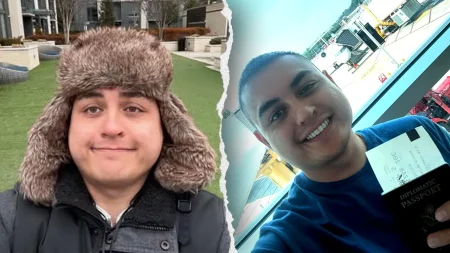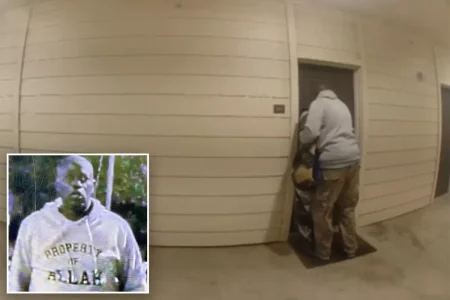Ryan Routh’s Bizarre Pre-Trial Behavior in Trump Assassination Attempt Case
In a dramatic courtroom appearance that left many observers bewildered, Ryan Routh, the 59-year-old man accused of attempting to assassinate former President Donald Trump, exhibited highly unusual behavior during his final pre-trial hearing in Fort Pierce, Florida. Shackled at his wrists and ankles and dressed in a blue jumpsuit with black reading glasses, Routh, who has chosen to represent himself despite the severity of the charges, submitted a series of bizarre court filings that ranged from challenging Trump to a golf match with deadly stakes to requesting access to female strippers. “A round of golf with the racist pig, he wins he can execute me, I win I get his job,” Routh wrote in one filing, riddled with typographical errors. The accused would-be assassin even suggested a physical altercation with the former president, writing, “I think a beatdown session would be more fun and entertaining for everyone; give me shackles and cuffs and let the old fat man give it his worst.”
The September 15, 2024, incident marked the second assassination attempt against Trump in a matter of months, resulting in Routh facing serious charges including attempting to assassinate Trump, assaulting a federal officer, and multiple firearms violations. Despite the gravity of these allegations, Routh has pleaded not guilty and continues to make perplexing requests to the court. During Tuesday’s hearing, he presented approximately a dozen additional witnesses he wished to subpoena, including Trump himself. While Judge Aileen Cannon had previously approved four character witnesses for Routh, he requested several more, including a former romantic partner who he claimed could testify to his “gentleness.” Judge Cannon dismissed this request as “clearly absurd,” maintaining firm boundaries around Routh’s self-representation.
Further demonstrating his unusual approach to his defense, Routh expressed interest in questioning several Harvard professors who he believed could testify that his actions were justified. However, Judge Cannon had previously ruled against allowing Routh to use justification as a defense strategy, effectively blocking this line of argument. This isn’t the first time Routh has made strange requests during the legal proceedings. In July, Fox News Digital reported that Routh had written an unusual letter to Judge Cannon asking why the death penalty wasn’t being considered in his case—an extraordinary inquiry from someone facing such serious charges.
In that same letter, Routh proposed being included in a prisoner swap with U.S. adversaries, even suggesting he could be sent “to freeze in Siberia” in exchange for a Ukrainian soldier. These peculiar requests and statements have raised questions about Routh’s mental state and his capacity to effectively represent himself in court, though Judge Cannon has previously ruled that he is competent to do so. The unusual nature of his filings and courtroom behavior presents a stark contrast to the seriousness of the allegations against him, which involve what prosecutors describe as a calculated attempt to assassinate a former president of the United States.
Routh’s case has garnered significant public attention not only because of the target of the alleged assassination attempt but also due to the defendant’s unorthodox approach to his legal defense. His decision to represent himself, despite having no apparent legal training, and his strange filings have created a spectacle that sometimes overshadows the gravity of the charges. Legal experts observing the case have noted that defendants who represent themselves often face significant disadvantages in court, particularly in complex federal cases with substantial evidence and serious potential consequences.
With Routh’s jury trial set to begin on September 8, the coming weeks will determine whether his unconventional defense strategy will have any impact on the jury’s perception of the case. The prosecution is expected to present evidence related to the September 15 incident, while Routh appears focused on presenting character witnesses and making unusual arguments that may have little relevance to the legal questions at hand. As the trial approaches, both the legal community and the public will be watching closely to see how this unusual case unfolds, and whether Routh’s decision to represent himself will ultimately affect the outcome of what promises to be one of the most closely watched federal trials of the year.









